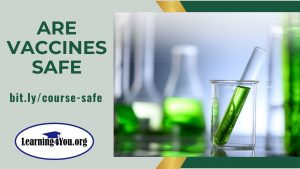Reprinted with permission from Shirley Lipschutz-Robinson
Most pet owners aren’t aware of the dangers surrounding animal vaccinations that have been discovered in recent years. Major veterinary associations now agree that immunizations can trigger all sorts of maladies, from allergies to cancer, but most pet caretakers (and many veterinarians, it seems) haven’t gotten the word.
“With vaccines that are repeated year after year, the frequency and severity of these side-effects in our pets has increased dramatically.” Dr. Donna Starita Mehan, DVM
There is an ever-broadening trend of eliminating vaccinations for adult dogs, except for rabies, where required by state law. We have now had a report that all 27 veterinary schools in North America are in the process of changing their protocols for vaccinating dogs and cats. Here, in a nutshell, are the new guidelines under consideration: “Dogs’ and cats’ immune systems mature fully at 6 months. If a modified live virus (MLV) vaccine is given after 6 months of age, it produces immunity, which is good for the life of the pet (i.e., canine distemper, parvo, feline distemper). If another MLV vaccine is given a year later, the antibodies from the first vaccine neutralize the antigens of the second vaccine and there is little or no effect. The titer is not ‘boosted’, nor are more memory cells induced.
“Not only are annual boosters for parvo and distemper unnecessary, they subject the pet to potential risks of allergic reactions and immune-mediated hemolytic anemia. There is no scientific documentation to back up label claims for annual administration of MLV vaccines. Puppies receive antibodies through their mother’s milk. This natural protection can last 8-14 weeks. Puppies and kittens should NOT be vaccinated at LESS than 8 weeks. Maternal immunity will neutralize the vaccine and little protection (0-38%) will be produced. Vaccination at 6 weeks will, however, delay the timing of the first highly effective vaccine. Vaccinations given 2 weeks apart suppress rather than stimulate the immune system. A series of vaccinations is given starting at 8 weeks and given 3-4 weeks apart up to 16 weeks of age. Another vaccination given sometime after 6 months of age (usually at 1 year 4 months) will provide lifetime immunity.”
 Illness occurring after immunizations
Illness occurring after immunizations
Chrissie Mason B.R.C.P., Ph.D. – “I am becoming seriously concerned at the increase in the cases of autoimmune disease, and the canine/feline vaccination program which I consider to be inextricably linked. Certainly, I do not stand alone in holding these views, as a number of orthodox veterinary practitioners have expressed their concern over the incidence of certain types of illness suddenly appearing after immunizations have been administered. Often these are severe skin disorders, gastrointestinal disturbances, sickness and colitis symptoms, all of which have been observed and recorded.
A further occurrence observed by some veterinarians is that of a tumor or growth appearing directly on or around the sight of the annual injection, this is particularly noticeable in the feline world, and can take the form of fibrosarcoma. Indeed, the list of symptoms that can be linked with the overexuberant immunizations appears endless: warty growths, tumors of both malignant and benign type, seizures, skin problems, bone and joint disorders. In America, the veterinary immunologists claim that vaccinations should only be given once or twice during an animal’s lifetime.
There is no need or evidence to prove that annual vaccination programs are either essential or effective. On the contrary, research suggests that no dog over 7 years of age derives benefit from the annual vaccine schedule. Furthermore, those animals submitted to the annual boosters go on to display exacerbation of joint related ills in later life.”
Adverse effects from animal vaccination
Dr. Ronald D. Schultz, Ph.D..- “Annual re-vaccination provides no benefit and may increase the risk for adverse reactions. The percentage of vaccinated animals (those vaccinated only as puppies) protected from clinical disease after challenge with canine distemper virus, canine parvovirus and canine adenovirus in the study was greater than 95%.”
Dr. Charles E Loops, DVM – “The first thing that must change with routine vaccinations is the myth that vaccines are not harmful. Veterinarians and animal guardians have to come to realize that they are not protecting animals from disease by annual vaccinations, but in fact, are destroying the vitality and defense systems of these same animals they love and care for. Homeopathic veterinarians and other holistic practitioners have maintained for some time that vaccinations do more harm than they provide benefits. Vaccinations represent a major assault on the animal’s immune system. Vaccine induced chronic diseases range from life-threatening conditions such as auto-immune crises to conditions destroying the quality of life of an animal as in chronic skin allergies.”
Dee Blanco, DVM – “You take healthy animals and often very quickly after you vaccinate, you can see simple things like itching of the skin or excessive licking of the paws sometimes even with no eruptions and licking of the air. We see a lot of epilepsy/seizure, often after a rabies vaccination. Or dogs or cats can become aggressive for several days. Frequently, you’ll see urinary tract infections in cats, often within three months after their [annual] vaccination. If you step back, open your mind and heart, you’ll start to see patterns of illness post-vaccination.” See more information on the vaccinosis symptom of severe inflammation of the tail.
Dr. Donna Kelleher, a Seattle-based veterinarian who uses acupuncture and chiropractic, says that improving an animal’s immune system will negate the need for most vaccines. Vaccines, she says, have been shown to cause auto-immune diseases. “I feel they may be responsible for arthritis, skin, liver and kidney problems as well.”
 Are We Vaccinating Too Much?
Are We Vaccinating Too Much?
Dr. Dennis Macy DVM – “We should not allow politics and tradition or greed to enter the decision (on frequency of vaccination). Changing vaccination schedules doesn’t have to mean less profit, but that you have more income from some clients and less from others. Veterinarians and the industry need to have guts to be honest with ourselves and assess the risk and not be trapped in tradition.”
Dr. Christina Chambreau, DVM – “Routine vaccinations are probably the worst thing that we do for our animals. They cause all types of illnesses and harm but not directly to where we would relate them definitely to be caused by the vaccine. Repeating vaccinations on a yearly basis undermines the whole energetic well-being of our animals. Animals do not seem to be decimated by one or two vaccines when they are young and veterinary immunologists tell us that viral vaccines need only be given once or twice in an animal’s life. First, there is no need for annual vaccinations and, second, they definitely cause chronic disease. As a homeopath, it is almost impossible to cure an animal without first addressing the problems that vaccines have caused to the animal, no matter what the species.”
1 in 10 Risk of Adverse Reactions from Vaccines
Journal of the American Veterinary Medical Association – Adverse events diagnosed within three days of vaccine administration in dogs. In a study of more than 2,000 cats and dogs in the United Kingdom by Canine Health Concern, it showed a 1 in 10 risk of adverse reactions from vaccines. This contradicts what the vaccine manufacturers report for rates of adverse reactions, which is “less than 15 adverse reactions in 100,000 animals vaccinated” (0.015 percent). Additionally, adverse reactions of small breeds are 10 times higher than large breeds, suggesting standard vaccine doses are too high for smaller animals.
A great number of studies have shown that when you vaccinate an animal, the body’s inflammatory cytokines not only increase dramatically, but so do the brain’s inflammatory chemicals. Many pet guardians observe changes in a pet subsequent to the first series of animal vaccinations – obsessive licking of painful inflamed paws, lethargy, vomiting, itching, ear or eye discharge, to name but a few. The veterinarian will reassure you that these symptoms are normal. Sadly, for some companion animals, these symptoms worsen and lead to death. For other pets, they lead to a lifetime of health problems. Vaccines are making our dogs sick as vets cash in.
Profit-hungry drug companies and vets are ‘frightening’ dog owners into inoculating their pets more often than necessary, according to Canine Health Concern. Some puppies have developed conditions including autism and epilepsy after a raft of injections, it warns.
Dr. Richard H. Pitcairn, DVM, Ph.D – “For some readers the very idea that vaccines are anything but wonderful and life-saving may come as a surprise, and it’s not a very pleasant one.”
Dr. Blanco, DVM notes that while more and more health care providers become enlightened and refuse to vaccinate their kids and patients, they often forget about their animals. Remember your sweet pets!
Read Shirley’s full newsletter here for much more information on animal vaccines.
++++++++++++++++++++++++++++++++
 Like what you’re reading on The Tenpenny Report? Share this article with your friends. Help us grow.
Like what you’re reading on The Tenpenny Report? Share this article with your friends. Help us grow.
Join our list here
Get more of Dr. Tenpenny’s voice of reason at her website.
++++++++++++++++++++++++++++++++
Shirley’s Wellness Cafe website is dedicated to the Holistic Health of people and animals. Visit her website here: https://www.shirleys-wellness-cafe.com/

